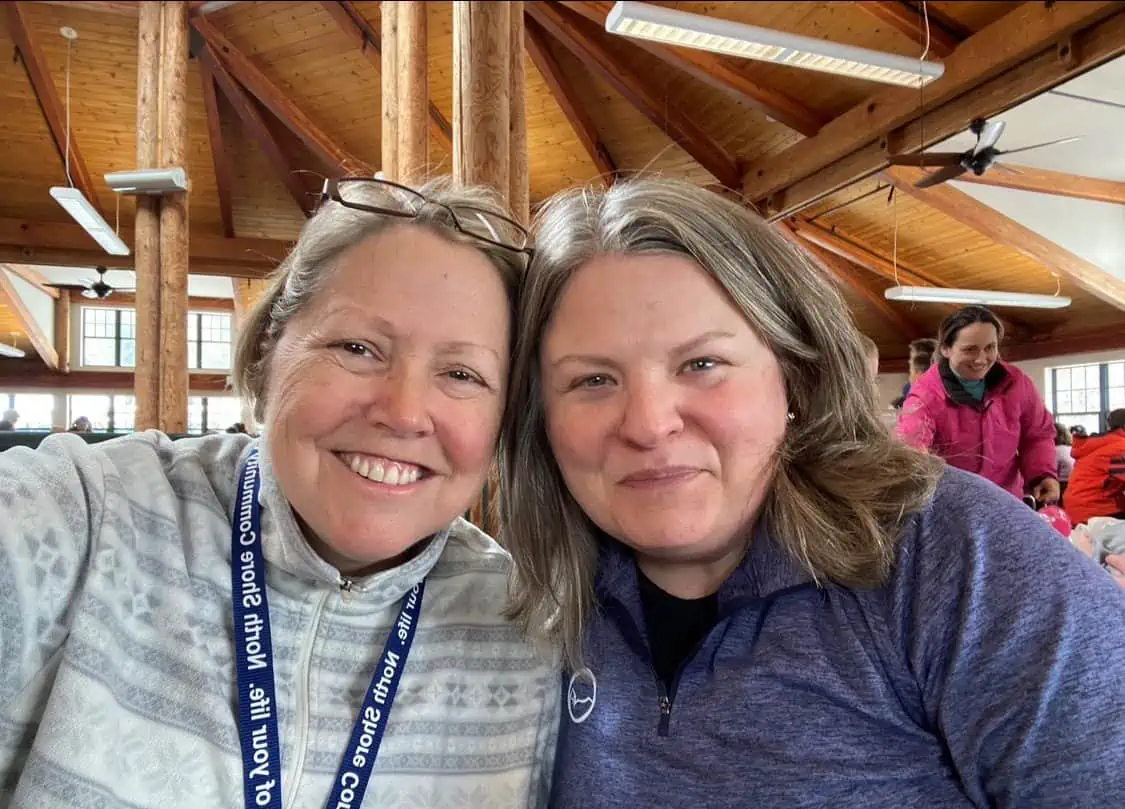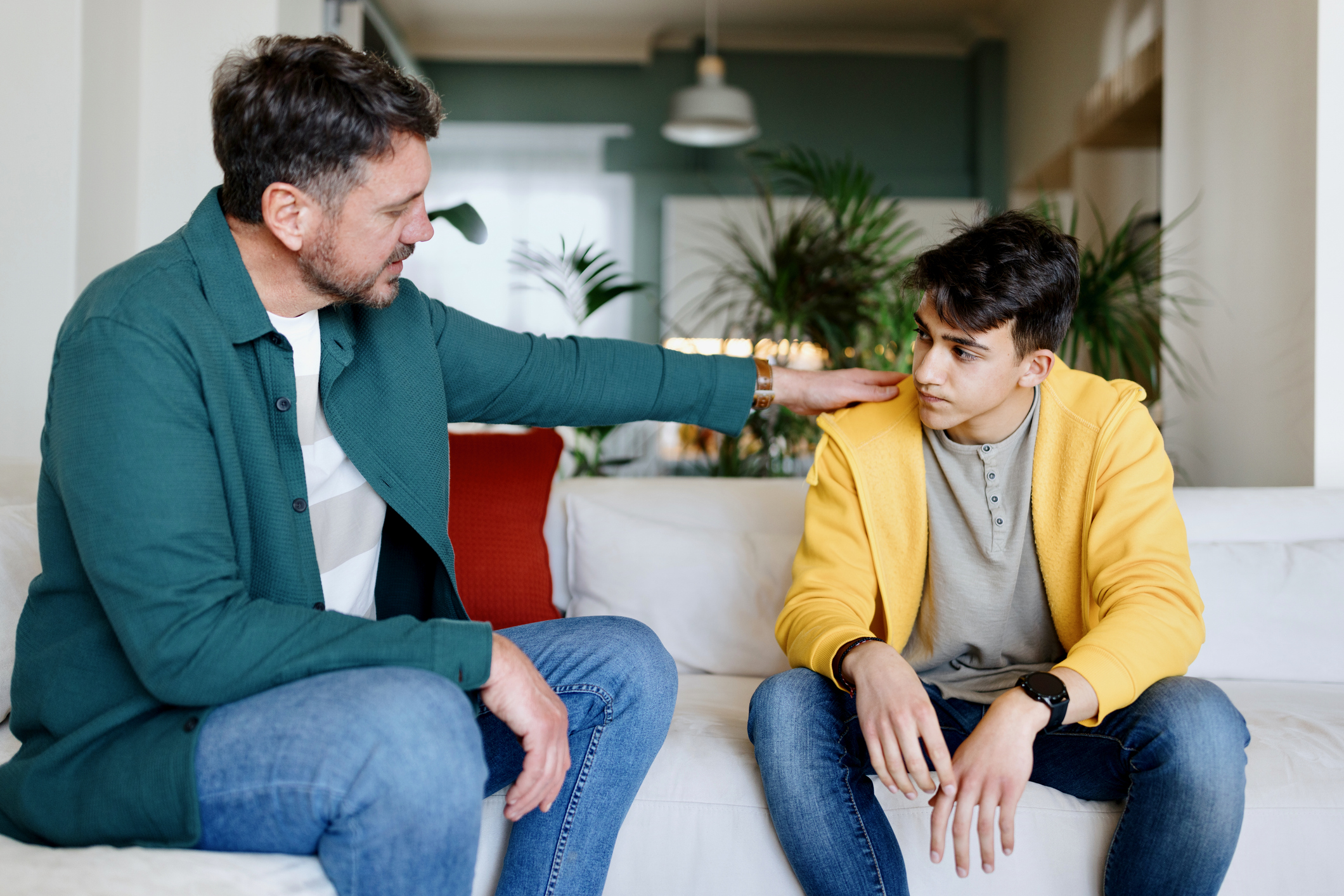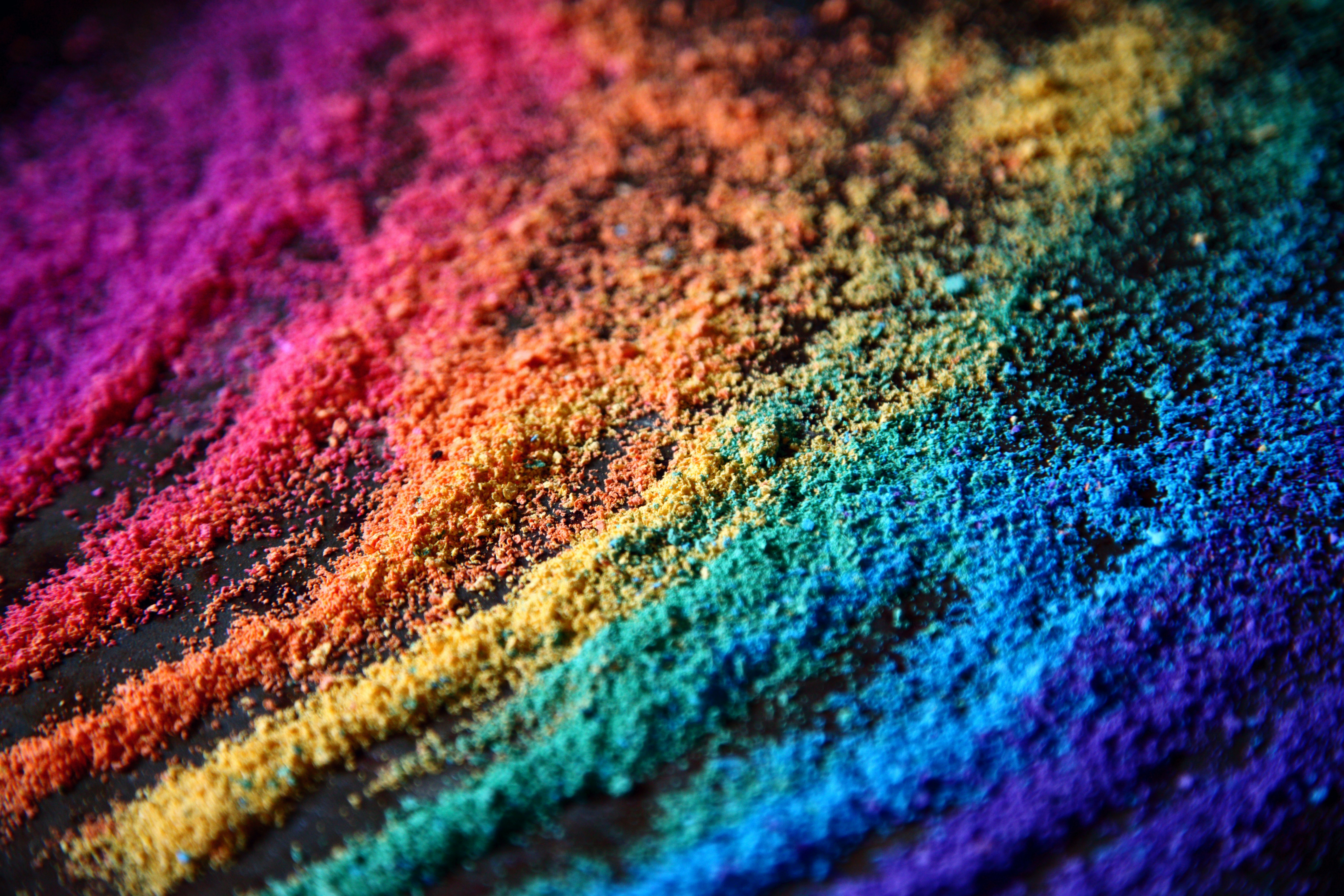- Sobriety Date: September 20, 2018
- Devoted partner
- Trained recovery coach
- Outdoor adventurer
Alcohol took center stage for most of Gaylen’s early life. Her perseverance along with the support of her loved ones helped her reach a life in recovery she never thought was possible.
Transcript
Alcohol was the main character in the beginning chapters of Gaylen’s story. With the help of her partner and loved ones, Gaylen found recovery, discovered new passions, and now serves as a recovery coach offering support to those in need.
Let me just say I was always a heavy drinker. I went to a Catholic, all-girls high school. And my parents were fairly strict. And my dad is a judge. Or was a judge. So us kids didn’t mess around so much. But as soon as I went to college, I started experimenting, obviously with alcohol. And you know, pot, some drugs, but mostly alcohol, and found that that was something that gave me confidence.
It made me feel like I belonged in a group. So throughout college and my early adulthood, I was someone who always had a drink in my hand, always went out. If we were going out anywhere, there was always alcohol involved.
Whether we were going to a bar, kayaking, or camping, there was always alcohol involved.
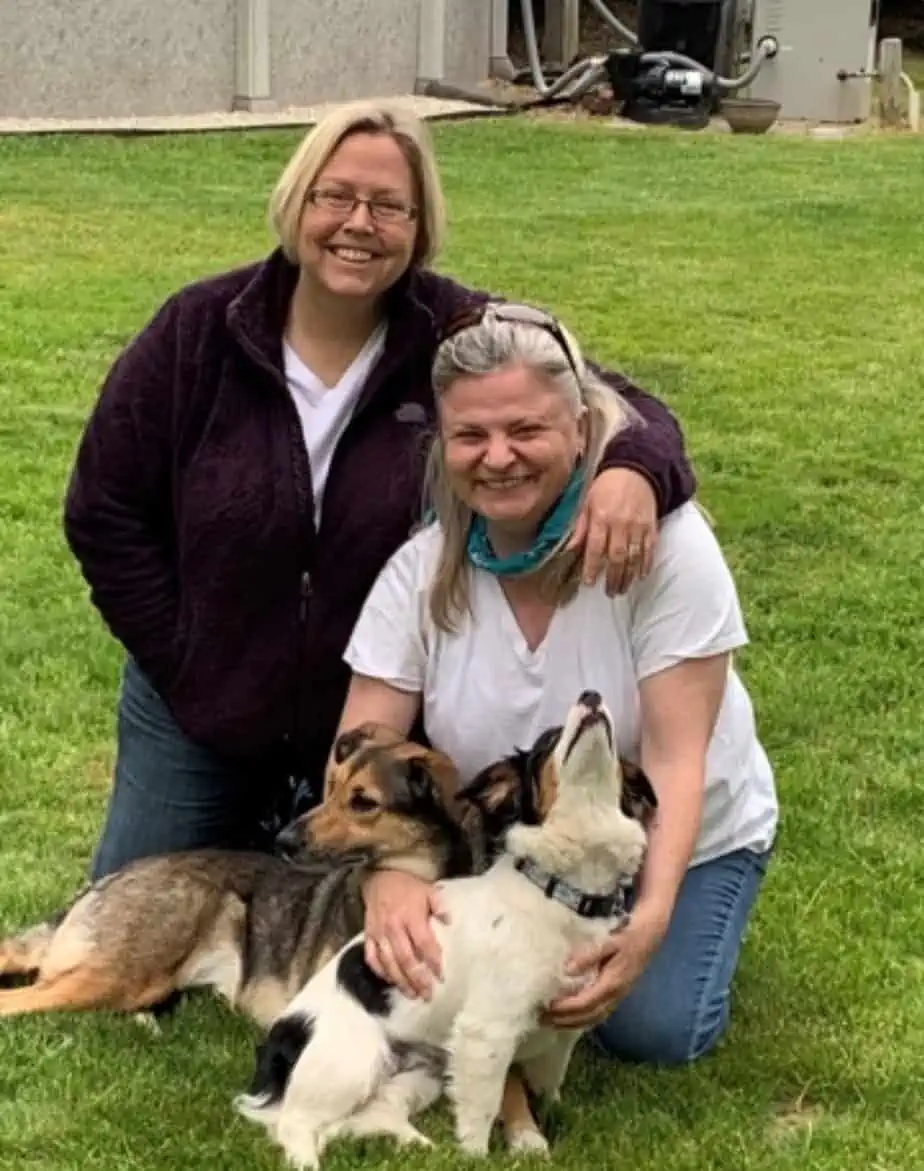 I was always concerned about making sure that there was alcohol there. And it wasn’t. Even like a conscious thing then, it was just like, oh, yeah, I’ll grab the beer or I’ll grab the wine or I’ll grab the drinks. Or whatever it is. Even when I was in a group that wasn’t necessarily big drinkers, I just thought there had to be alcohol there. I have a lot of great memories that involved alcohol.
I was always concerned about making sure that there was alcohol there. And it wasn’t. Even like a conscious thing then, it was just like, oh, yeah, I’ll grab the beer or I’ll grab the wine or I’ll grab the drinks. Or whatever it is. Even when I was in a group that wasn’t necessarily big drinkers, I just thought there had to be alcohol there. I have a lot of great memories that involved alcohol.
As time went on, you know, alcohol became more of a central part of my life. When I was in my 30s or got into my 30s, I moved to Cambridge, MA. We could walk everywhere, and we did. So we walked downtown, and we’d go to different restaurants every night. I mean I had a new job and I had just gotten my Masters’s degree and I was like, I’m living large now like I can do anything I want.
I don’t have to stay in on a school night, which was always a big thing in my house when I was a kid and I was like, this is fantastic. I love being an adult and I took full advantage of that. I would go out every night, and be downtown drinking.
Alcohol was always involved. We went to music concerts, did all kinds of stuff, and it was during that time that I was living with a roommate and she came home from work one night and she said, “Hey, I had a great day at work today. Let’s celebrate.”
She bought home a bottle of gin and some tonic and we had a drink at home. And we stayed the rest of the night at the apartment and I got drunk at the apartment. And I was like, this is the best because I’m not spending too much money. I’m not going out and eating too much and that sort of thing.
And that was really the first time that I started drinking at home. From that night forward, drinking was a part of my everyday life. I would come home from work or wherever and I’d have a drink or a nightcap.
I was very good at drinking too much because it never affected my job. I never missed a day of work.
I went to work hungover. And I went to work feeling lousy and that sort of thing. But I never missed a day at work. I was never reprimanded at work for being late anything like that.
My work is very important to me. Was then and is now. So I always made sure that I was ready to go in and do my job. I’m a physician assistant and it was important to me that I take care of my patients well. During this time, I met my partner and we moved to Roslindale, Massachusetts, which was a smaller town. And you couldn’t walk everywhere, and we collectively both of us, started drinking every night at home.
You know, she’d arrive home and I would make her a drink and say, “Hey, welcome home. Here’s a drink. Blah blah blah.” She was not drinking as much as I was but was totally on board with everything that was going on at the time. There were several occasions where I went out and drank way too much and came home and she was upset with me or, you know, said I think maybe you have a drinking problem.
And at the time, I was like, “No way. I’m just having fun. This is what people do.” We then a few years later, moved up to an even smaller town in northern Massachusetts that does not have public transportation, anything like that, and pretty much began exclusively drinking at home. So we had been up in this area for about 5 years and my relationship with my partner had soured.
I was a daily drinker. I became very angry and resentful. And took it out mostly on her, which I regret, and have had to do a lot of work to repair that relationship. We’re still together.
We love each other very much, but we wouldn’t be together if I wasn’t sober.
She kind of quit drinking like she was like, I’m pretty much done with this. Like I don’t like alcohol. I don’t like what it does to you. I don’t like what it does to me. And I became more and more isolated. I withdrew from my friends and my family. I certainly withdrew from her. I would spend a lot of time by myself. 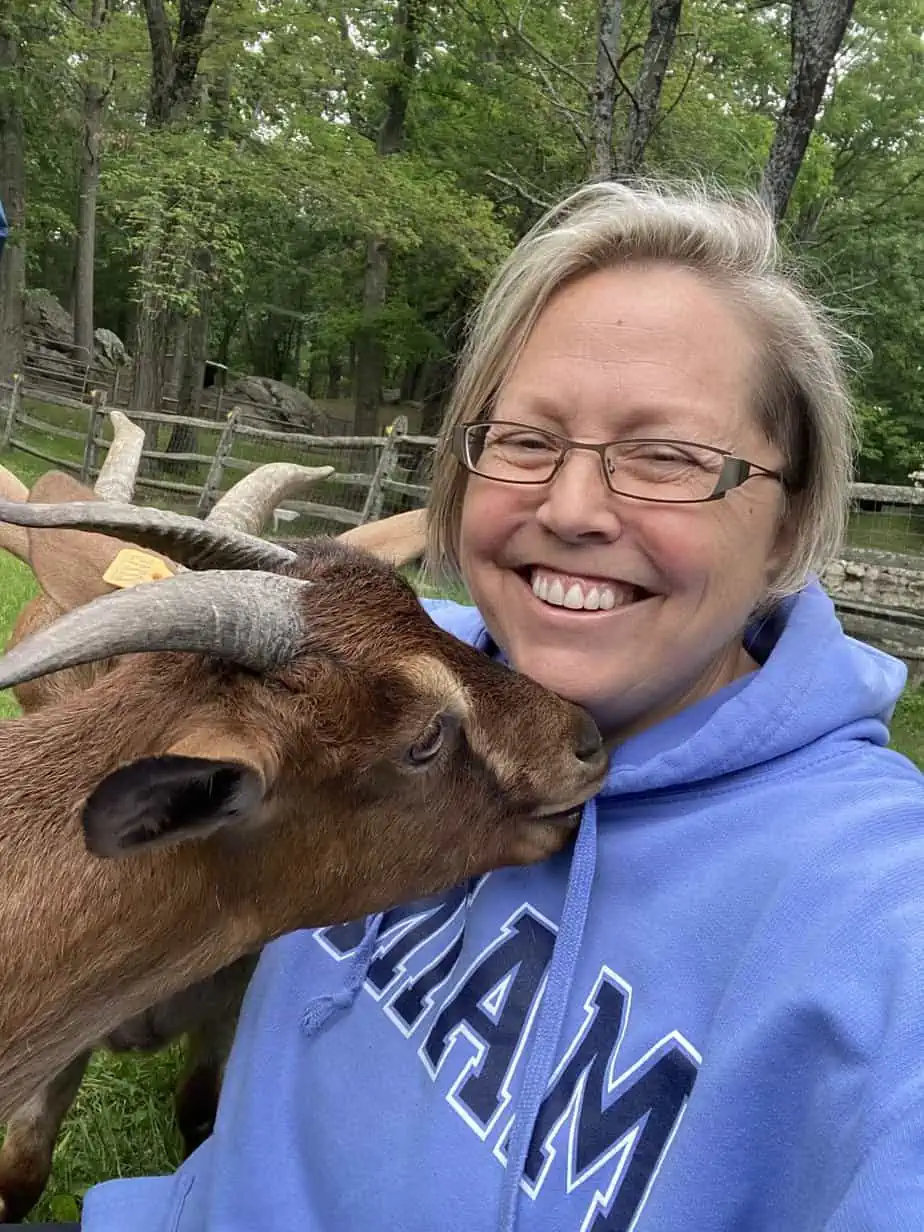
She knew, obviously, that I had a drinking problem. And I knew as well, although I hadn’t said that out loud to anyone. But I sort of came to that realization myself. I had friends who were talking to me about it and saying, you know, you should quit drinking and I kept saying no, no, no. There came a point where I knew it was a problem and I tried to quit on my own for probably two or three years.
I went to meetings, I went to therapy. I went to anything I could think of to get sober. Sometimes I was able to stay sober for a day. Sometimes I was able to stay sober for an hour and then I couldn’t take it any longer. The longest I went was like 100 days. I was sober and at that point, I was like, this is great. I’m bitter and I decided to start drinking again.
I wanted to drink moderately. I never wanted alcohol to not be a part of my life. I tried to figure out how I could keep drinking but not get in trouble or ruin relationships.
So I started drinking again and almost immediately was right back to where I was, started drinking very heavily right back to the point I had been when I had quit drinking. My friends sat down with my partner and said she can’t go on with this. She had gone away for a weekend to see her parents and I took that as a free rein for me to be drunk the whole weekend.
When she came home, they sat down and they said, we have to get her to treatment. She has to. She can’t continue the way that she is. So a few days later they sat me down – my closest friends, my partner, and my older brother, who is very supportive. My younger brother also is very supportive, but they sat me down and they said you are out of control. You’re totally out of control. And we don’t want to be around you and we don’t want to be a part of your life.
You have to go to treatment and we’ve got a place for you to go and you have to go tonight. I ended up going the next morning and I’ve been sober ever since. That was nearly five years ago. I’ll be sober five years.
I had gone to AA and didn’t really have much luck meeting people. It wasn’t a place where I found a lot of support and a lot of comfort. Many people do, but it wasn’t the right thing for me.
When my partner was looking around, she knew she had to find a place that focused more holistically and on the whole person as opposed to just the 12 steps. Not that I was opposed to the 12 steps, but I just hadn’t found my niche in that community. When I went to Mountainside, I was ready to do the outdoor stuff, the Wellness activities, the acupuncture, and the clinical work with my clinician and the family therapists.
Basically anything they told me I was willing to do. I went to the AA meetings and I did everything like I never missed a session. I really wanted to get better now. That being said, I wasn’t sure that I wanted to quit drinking. I just wanted to get better. And I can say, even when I left Mountainside, I wasn’t sure what was going to happen.
I sort of said, OK, well, now you’re sober like you’ve detoxed and you’ve got it out of your system and you’re on the right track here. I still had hoped at one point I could start drinking again, like, moderately. But drinking was totally out of the question for me and most people.
When I came home, I went to IOP for about 6 weeks and I stayed in touch with many of the people that I was at Mountainside with. Some of whom I’m still in touch with today. I did go to meetings for the first year that I was sober.
I liked what was happening in my life, and so I just continued doing the things that seemed to be working.
That seemed to be helpful. But I used to meditate a couple of times a week. I did yoga for 12-step recovery for a couple of months after I got home and it was interesting because for so long, alcohol had been my story. Like that’s what people knew about me. That was the main character of my life, and when I came home, recovery became the main character of my life.
I bought every book about recovery. I listened to podcasts. I tried SMART Recovery meetings. I would go down once a month to Canaan and go to the Friday night meetings at Mountainside. I drove all the way down there, make sure I wasn’t working, and drive all the way down there. Get my monthly coin. And then drive back home and it’s not close. It’s like 3 1/2 hours away.
Sometimes I went with other people who were at Mountainside with me. And we had a chance to catch up and I really enjoyed doing that because being there and physically being there for the meeting really strengthened the recovery journey that I was on. Everything, everything I did for the first year 2-3 years was recovery was an undercurrent of everything that I did and I was and am incredibly grateful that I am sober.
I can’t imagine any situation in which I would go back to drinking again. I know it’s always a risk but I don’t really have cravings. I’m very lucky that I didn’t have to find a new group of friends. I didn’t have to find a new partner. They were and are very supportive then and now they don’t drink around me. Alcohol now is just not a part of my life.
From my 20s to my mid-30s, the main character of my story was alcohol and it’s just not anymore. The main character of my story is my life.
Whether it’s going out with friends and having meaningful relationships with my family, helping to care for my aging parents, being a good aunt and spending time with my wonderful partner Allison and enjoying her company, and sharing my life with her – alcohol is just not involved with that.
Two years ago, I became a recovery coach. I don’t work professionally as a recovery coach. But I use my training as a recovery coach in my job and I use my training in my everyday life as a physician assistant. I actually work in surgery and we have a lot of patients who come in and their families who have addiction as a part of their story.
Whether it’s alcohol or drugs or, you know, people often come in with abscesses or they come in with appendicitis, we try and make sure we get them out of the hospital before they go into withdrawal or that sort of thing. I always try to take that opportunity to bring recovery to them. Going through the training of being a recovery coach has let me use those skills in my professional life.
And in my personal life, we have several friends who have come to us and said, Hey, my spouse is an alcoholic or an addict or whatever it might be. And we’re really struggling. He doesn’t want to get treatment or she doesn’t want to get treatment. And what do you suggest?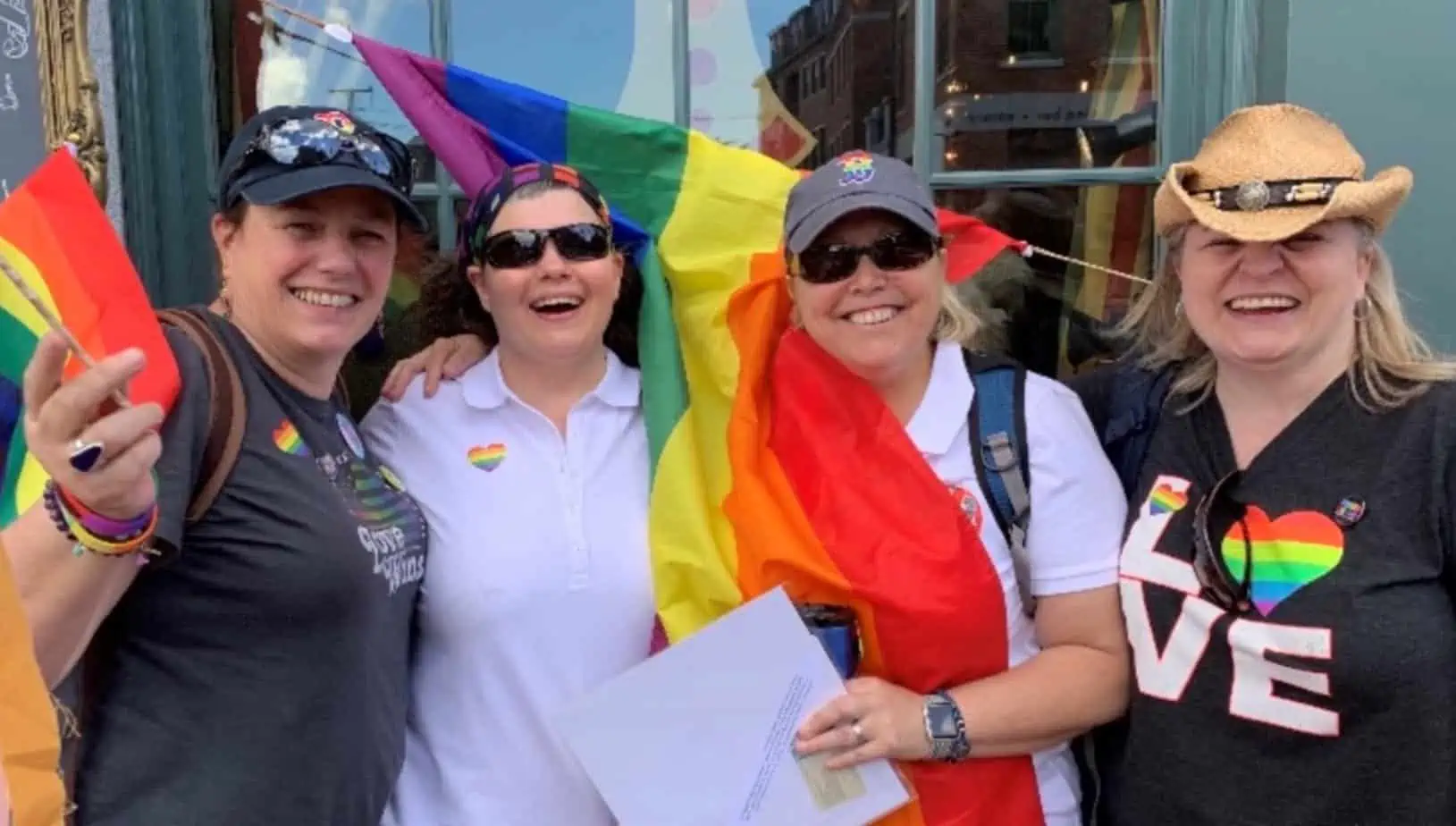
Allison and I both will sit down with them or with the sober spouse or the one who’s not an addict and talk about what it was like for us. We have made it clear to lots of people that we are always available to talk to and to provide support. As well as help get people into treatment if they want it, and if they if they need it.
Some people take it and some people really struggle and go on and on either relapsing or not going to treatment at all, not getting sober at all. And those are the people that I actually feel the most connection to because I always think that there’s hope.
You can relapse over and over and the 31st time might be the time that you get sober.
You might spend lots of time in between sober but still rely on alcohol when things get hard. I know how good sobriety has been for me and how much it has changed my life for the better and I want other people to feel that as well.
Want to be featured? If you are a Mountainside alumni interested in sharing your recovery story with us, please email kevin.doyle@mountainside.com
If you or a loved one is struggling with addiction, Mountainside can help.
Click here or call (888) 833-4676 to speak with one of our addiction treatment experts.

 By
By 
